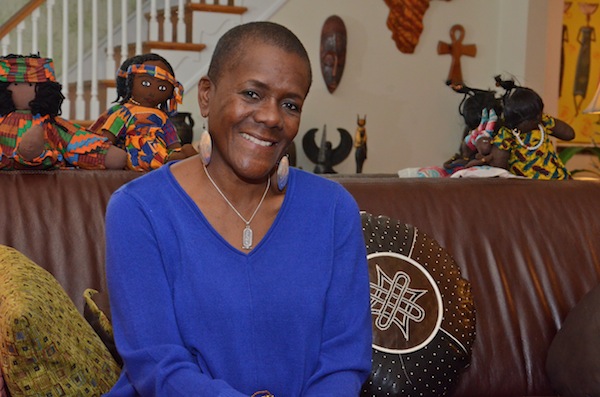Saving Ourselvespwnusa2015-10-22T17:24:32-04:00
By Nancy Asha Molock
October 23, 2015, marks the second National Day of Action To End Violence Against Women Living with HIV. This event was spearheaded by the Positive Women’s Network-USA during Domestic Violence Month to bring awareness to the violence and trauma experienced by women living with HIV. This campaign is imperative because we are in a fight to save our lives. If we don’t advocate for ourselves, who will?
Violence and trauma against women and girls is a violation of basic human rights at its core, and it crosses the spectrum of violence for HIV positive women, inclusive of transgender and cisgender women, from physical, emotional, psychological and economical standpoints. Reports have shown that half of women living with HIV and 58% of transgender women have experienced intimate partner violence.
Violence against women living HIV has also resulted in death, as in the cases of Cicely Bolden and Elisha Henson, who were both murdered after they disclosed their HIV statuses. Research indicates that intimate partner violence can increase a woman’s risk of contracting HIV by 50% and HIV positive women who are in abusive relationships may feel isolated and powerless to control their own sexual health putting them at risk for other STD’s. They may be afraid to refuse sex or demand safer sex because of fear of more violence, perpetuating the cycle. The abuser may also threaten to disclose her HIV status as a means of control to get the woman to stay in the abusive relationship.
I speak from experience on this issue. I was trying to exit a relationship that was verbally abusive. He threatened to email all of my friends (from a forwarded email list) and disclose my HIV status if I decided to end the relationship. I immediately panicked because I had not disclosed my HIV status to anyone, except for a few close family members. I somehow found the strength to call his bluff and told him to go ahead and tell, that I didn’t care. I had to be free from him because I knew staying in the relationship could result in deterioration of my physical and mental health and even lead to possible death.
When I stood my ground, he didn’t follow through with his threat. But, not everyone has the strength or means to stand up for themselves. Thus, there is a vital need for integrated approach to services and to expand trauma- informed care. Clinics and agencies must identify HIV/IPV risk factors and link services as quickly and safely as possible, without delays or multiple visits, in order to protect the lives of women seeking care.
Screening and linkage to care is important in improving the overall care and health of women and girls because the sooner the DV/IPV is identified, the level of immediate danger may be decreased. Not addressing the effects of violence and trauma and providing effective trauma-informed care can have a trickle down effect that puts a whole new generation of young women and girls at risk for acquiring HIV.
Violence against women and women living with HIV should be a public outcry and health concern of top priority. Violence and HIV are deeply intertwined and if we want to see the end of AIDS in the United States or globally, we must work to free women from the trauma and violence that can lead to acquiring HIV.
In order to do this, the recommendations and guidelines set forth by the Interagency Federal Working Group on the Intersection of HIV/AIDS, Violence Against Women and Girls and Gender -Related Health Disparities must be put into effective and continuous action, and it’s up to the women who are living with HIV to make sure this happens, for ourselves and for all women. It’s our legacy to the future generation of young women, to leave them a world where they are free from violence and trauma and the possibility of contracting HIV. In saving ourselves we are also saving future generations!



